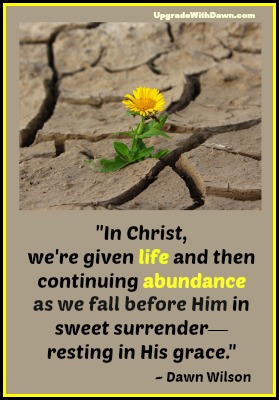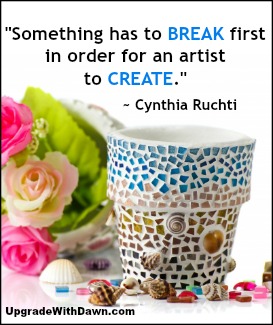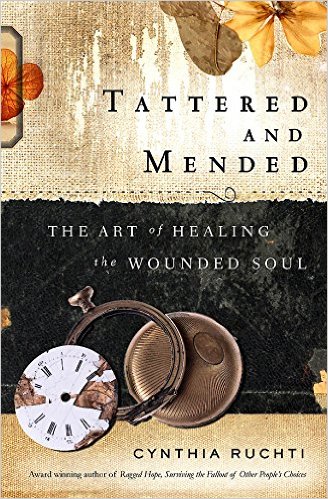How Do I Protect Myself from Manipulation?
Debbie W. Wilson, who loves to point people to her big, BIG God, also loves to share His wisdom with people. In this Wisdom UPGRADE, she tackles the tough topic of manipulation. 
Debbie says, "A counseling professor told a woman in one of Larry's lab groups, 'Your tears don't move me.'"
That sounds heartless, but I (Dawn) understand that response. I've made the same response in a counseling format, and with good reason.
Debbie continues . . .
His words stunned the group, but the woman stopped crying.
“Those were tears of frustration,” he explained. “They weren’t tears of brokenness.”
I’ve thought of that many times when someone’s tears haven’t moved me and I wondered what was behind them.
Crocodiles shed tears when they eat their prey, but not from regret or sorrow.
Some people use tears to manipulate. Others use flattery.
If that doesn’t work, they pout or explode to get us to follow their script.
Emotional pain is real. And manipulators use it to control us—if we let them.
One family I know didn’t take a vacation the first twenty years of marriage. Every time they planned a trip, the mother-in-law became ill and asked, “How can you leave when I’m about to die?”
Giving in to manipulation is harmful—not just unpleasant.
Jesus said no one can serve two masters. Submitting to manipulation makes the wrong person lord over our time and lives.
How do we protect ourselves from being manipulated?
Recognizing manipulation is the first step.
The controllers in our lives may be blind to their tactics, but that doesn’t mean we have to be in the dark.
The ugly feelings we experience after allowing ourselves to be manipulated should inform and motivate us to create healthy boundaries.
Consider the following if you suspect you are being manipulated:
1. How do you feel after you leave this person or group? .
Guilt may be a sign someone is trying to control you.
A woman pulled aside a friend of mine one night. She complained that she didn’t have any friends. My friend prayed for the woman but left feeling guilty. On the way home, she experienced an aha moment.
The woman was a manipulator. Her guilty feelings evaporated with this understanding..
2. Are you making decisions based on what you believe is best or to avoid disappointing or angering someone? .
We want to be kind and generous, but when someone takes more than we want to give we feel taken advantage of and resentful.
God loves a cheerful giver. If I’m feeling resentful, I probably need a clearer understanding of where my responsibilities end and theirs begin.
3. Am I living to avoid pain or to pursue faith and love?
Giving in to controlling people won’t protect us, in the long run, from emotional pain. We despise our spineless compliance and resent them and anyone who reminds us of them. This isn’t love.
People who habitually let others control them may develop self-destructive habits. They mindlessly shop, eat, gamble, or drink to numb the pain of feeling used.
Faith and love are better motivators than fear and guilt.
4. Do I believe all conflict is bad?.
When some religious people tried to control a group of believers in the early church, Paul wrote, “It is for freedom that Christ has set us free. Stand firm, then, and do not let yourselves be burdened again by a yoke of slavery” (Gal. 5:1, NIV).
Standing firm in our God-given freedom may upset those who want to control us. But that isn’t bad.
Paul said, “No doubt there have to be differences among you to show which of you have God’s approval.” (1 Cor. 11:19 NIV).
Conflict exposes hearts. If one arises because we won’t let someone wrongly control us, it’s okay. We’re in good company.
People with religious-sounding arguments tried to control Jesus, the Apostle Paul, and the disciples. Because these men understood God’s will, they escaped their nets.
By serving one Master, we can too.
What helps you recognize and resist manipulation?
 Debbie W. Wilson, drawing from her personal walk with Christ, twenty-four years as a Christian counselor, and decades as a Bible teacher, speaks and
Debbie W. Wilson, drawing from her personal walk with Christ, twenty-four years as a Christian counselor, and decades as a Bible teacher, speaks and  writes to help people discover relevant faith. She is the author of Little Women, Big God and Give Yourself a Break. Share her journey to refreshing faith at Debbie's blog.
writes to help people discover relevant faith. She is the author of Little Women, Big God and Give Yourself a Break. Share her journey to refreshing faith at Debbie's blog.
Graphic adapted, courtesy of Yomare at Pixabay.
 Post a Comment → Posted on
Post a Comment → Posted on  Tuesday, June 27, 2017 at 5:50AM
Tuesday, June 27, 2017 at 5:50AM  Brokenness,
Brokenness,  Conflict,
Conflict,  Controllers,
Controllers,  Debbie W. Wilson,
Debbie W. Wilson,  Manipulated,
Manipulated,  Manipulation,
Manipulation,  One Master,
One Master,  Resentment,
Resentment,  Serving One Master,
Serving One Master,  Upgrade with Dawn Upgrade Your Life
Upgrade with Dawn Upgrade Your Life  Attitudes,
Attitudes,  Relationships
Relationships 











